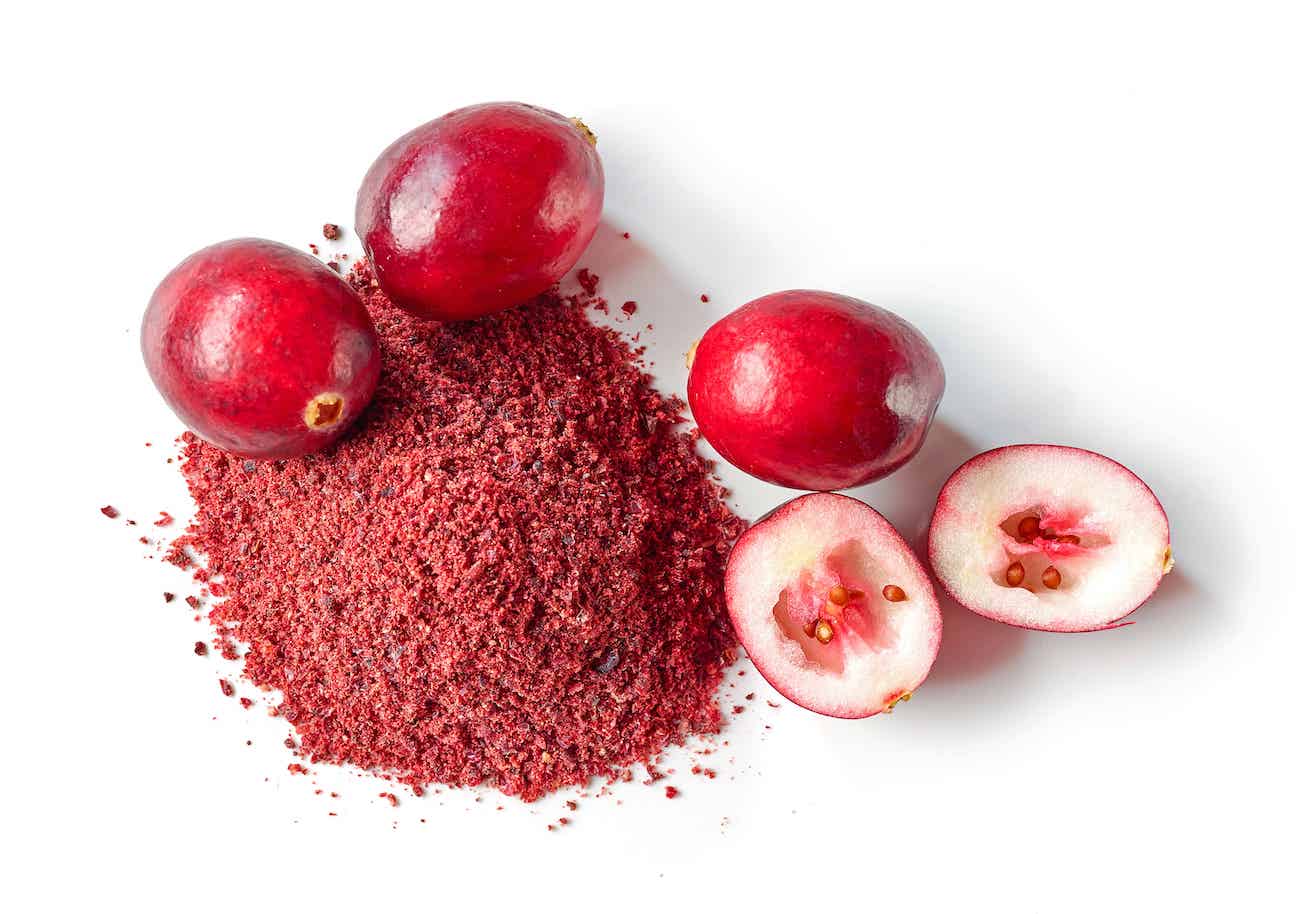Cranberry: A super berry with many benefits!
Over the last few years, the cranberry has become a very popular dietary supplement, not least for its many health benefits. Native to North America, this small red berry is appreciated for its tangy flavour in sweet and savoury recipes, but also for its many medicinal properties. In this article, we'll take a look at the benefits of cranberries, their origin and their use as a dietary supplement.
Origin and description of the cranberry
The cranberry is the fruit of the red cranberry (Vaccinium macrocarpon), a small evergreen shrub belonging to the Ericaceae family. This shrub grows mainly in cold regions of the northern hemisphere, such as North America, northern Europe and Asia. In France, it is found mainly in Brittany and the Massif Central.
A small, round, dark red berry with a tangy, slightly bitter taste. It looks a lot like a lingonberry, but with a firmer texture. Cranberries are mainly grown for juice, compotes, sauces and jams. But it is also increasingly used as a dietary supplement, in the form of capsules or powder.
The benefits of cranberries
Cranberries are rich in nutrients and active compounds, giving them numerous health benefits. Here are just a few of them:
1. Rich in antioxidants : Cranberries are rich in antioxidants, particularly polyphenols, which help combat the free radicals responsible for premature ageing and certain chronic diseases. These antioxidants are also beneficial for cardiovascular health.
2. Preventing urinary tract infections : Cranberries are often used to prevent urinary tract infections, particularly in women. It contains proanthocyanidins, which prevent bacteria from clinging to the walls of the bladder and urethra, thereby reducing the risk of infection.
3. Improving digestive health : Thanks to its antioxidant and anti-inflammatory properties, cranberries can help prevent stomach ulcers and relieve the symptoms of Crohn's disease and ulcerative colitis.
4. Boosting the immune system : Cranberries are rich in vitamin Cwhich is essential for boosting the immune system and preventing infectious diseases.
5. Anti-inflammatory action : Cranberries have anti-inflammatory properties that can help relieve joint and muscle pain.
Use as a food supplement
In addition to its medicinal properties, the cranberry is also used as a food supplement for its health benefits. It is generally available in capsule, capsule or powder form. Here are some of its most common uses:
- Preventing urinary tract infections: As mentioned above, cranberries are highly effective in preventing urinary tract infections, particularly in women. It is recommended that you take one to two capsules a day for prevention, or up to three capsules if you are already suffering from an infection.
- Strengthening the immune system : To boost your immune system, you can take cranberry capsules during the winter months or at the first signs of illness.
- Relief of digestive disorders: If you suffer from digestive disorders such as Crohn's disease or ulcerative colitis, taking cranberry capsules can help relieve symptoms thanks to their anti-inflammatory properties.
- Improved cardiovascular health : To protect your heart and blood vessels, you can take cranberry-based food supplements, which will help you fight free radicals and reduce blood cholesterol levels.
It is important to note that cranberries should not be used as the sole treatment for certain illnesses. It is always advisable to consult a doctor in the event of persistent symptoms.
Conclusion
The cranberry is a super berry with numerous health benefits. As well as being delicious, it's rich in nutrients and active compounds, making it an ideal ally for preventing urinary tract infections, boosting the immune system, improving digestive and cardiovascular health, and fighting inflammation. If you want to take advantage of its benefits, you can eat it in juice, compote or sauce, or as a dietary supplement. Make sure you choose quality products, organically grown if possible, and follow the dosage recommendations to get the full benefit of its properties.
Scientific sources :
Cranberry and its phytochemicals: a review of in vitro anticancer studies
Cranberries (Vaccinium macrocarpon) and cardiovascular disease risk factors











